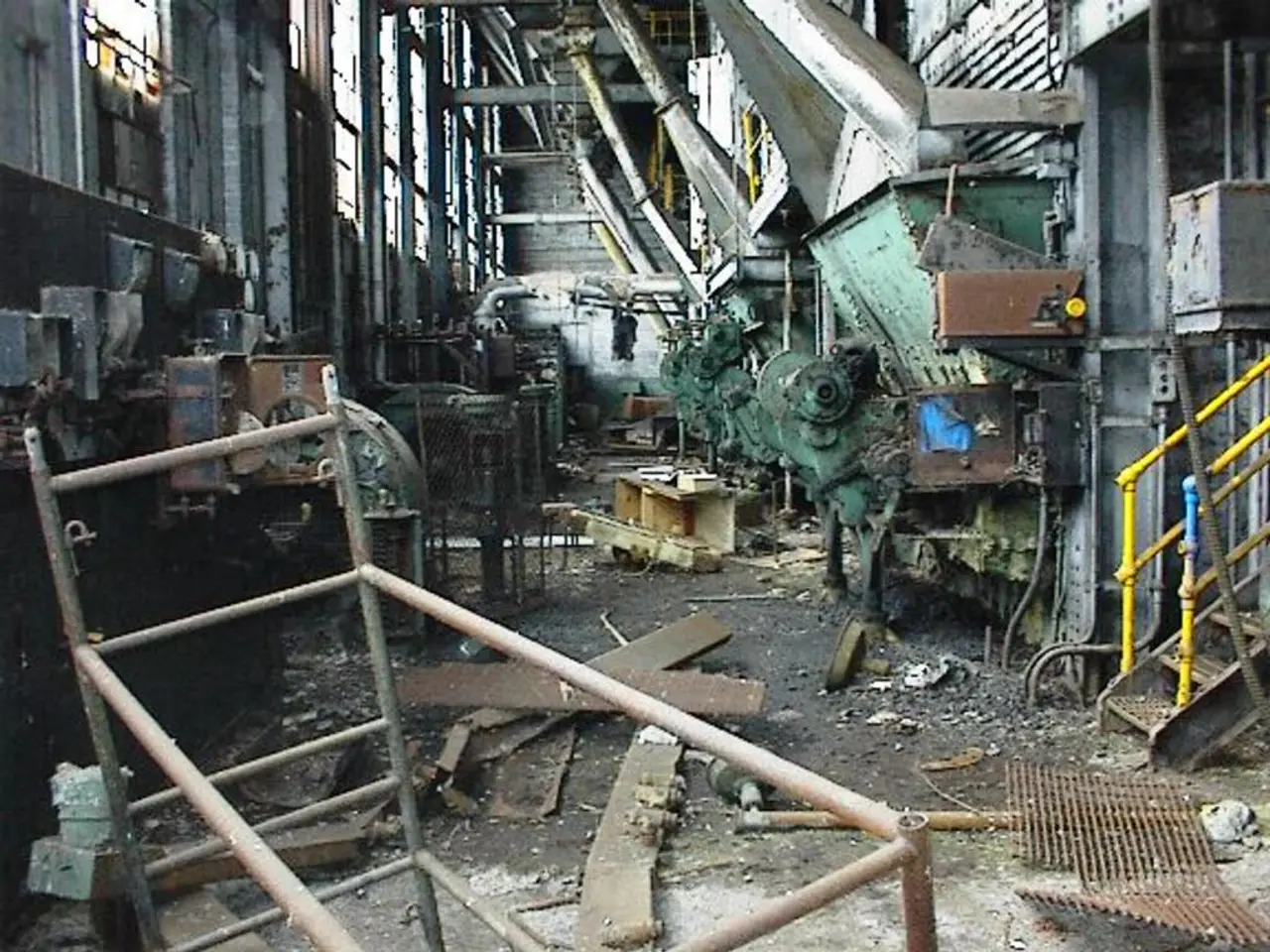Laborer in Krasno-Kamensk inhumane treatment: Chained to a battery during work hours
In the small Russian town of Krasnokamensk, an investigation is underway following a report by the Telegram channel "Incident Krasnokamensk" regarding the alleged physical restraint of a local man, Daniil Batuev, at his workplace. The incident, which has sparked widespread concern, involves Batuev being chained to a radiator by his employer as a punishment for absenteeism.
The investigation, being conducted by the Investigative Committee in Krasnokamensk, aims to determine if the incident constitutes illegal deprivation of liberty. All parties involved have given statements during the investigation, and the press service of the regional Investigative Committee is overseeing the proceedings.
Batuev claimed that he was chained due to absenteeism from work, but the exact nature of his absenteeism is not specified in the report. The employer's use of physical restraint as a punishment for absenteeism is a clear violation of human rights and is illegal under Russian law.
The incident highlights serious concerns about employee treatment and potential abuse in Russia. While the Russian labor laws provide various protections for employees, there are ongoing challenges and proposals for future changes.
Starting from September 1, 2025, changes to the Labor Code will prevent employers from reducing bonuses arbitrarily, even for disciplinary reasons. This indicates a move towards protecting employees from unfair treatment. The law also updates regulations for employees in specific industries, setting limits on physical activity for manual labor and clarifying working conditions for part-time workers in sectors such as teaching and healthcare.
However, while explicit protections against discrimination are not detailed in the Russian Labor Code, the general principle of not allowing employment conditions to be worse than those set out in the Labor Code suggests a commitment to fairness. The law also allows minors between 14 and 18 years old to work under certain conditions, provided there is proper consent and supervision.
Yet, challenges persist. There has been a significant rise in wage arrears among Russian companies, indicating financial pressures that may lead to disputes or poor treatment of employees. The Russian Ministry of Finance has also proposed additional fees for migrant workers, which could impact their employment conditions.
In light of the Krasnokamensk incident, it is clear that there are gaps in the legal framework, such as specific protections against physical abuse or harassment. The ongoing investigation serves as a reminder of the need for stronger protections and enforcement of existing labor laws to ensure fair employment practices and prevent incidents of abuse like the one in Krasnokamensk.
- The incident in Krasnokamensk, involving Daniil Batuev's alleged physical restraint at his workplace, has sparked discussions in the general news, raising concerns about workplace-wellness and health-and-wellness in Russia.
- As the investigation into Batuev's case progresses, crime-and-justice advocates argue that the violation of human rights and the illegal deprivation of liberty should be met with stricter penalties to deter similar actions in the future.
- As Russia prepares for changes to the Labor Code in 2025, aimed at protecting employees from arbitrary bonus reductions and improving working conditions in specific industries such as teaching and healthcare, concerns about ongoing wage arrears and proposed fees for migrant workers persist, highlighting the need for comprehensive science-based policies to ensure fair employment practices.




